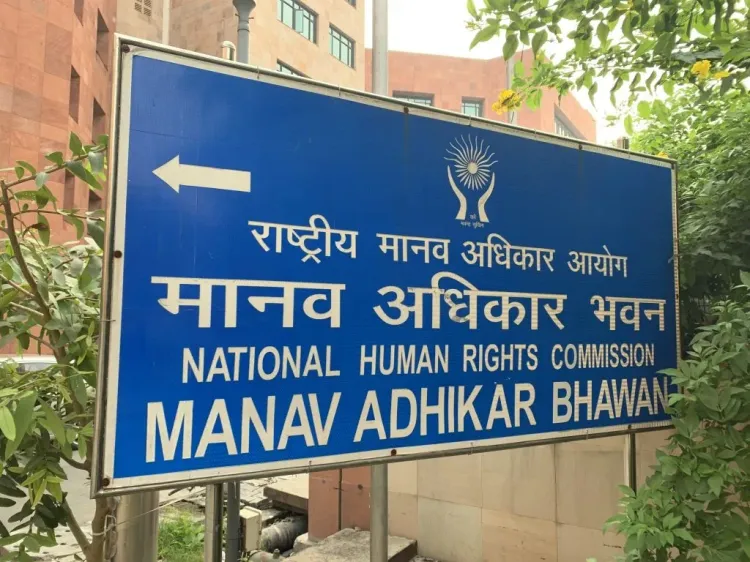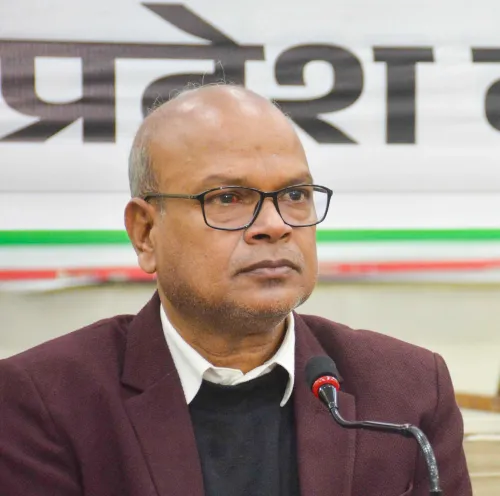What Actions is NHRC Taking Against Caste-Derogatory Names in India?

Synopsis
Key Takeaways
- NHRC issues notices to state departments for Action Taken Report.
- Focus on eradicating caste-derogatory names from public spaces.
- Deadline set for report submission is four weeks.
- States like Odisha and Maharashtra have already initiated changes.
- Legal precedents support the NHRC's actions against caste discrimination.
New Delhi, Aug 2 (NationPress) In a crucial initiative to safeguard constitutional principles of equality and dignity, the National Human Rights Commission (NHRC) has dispatched notices to the Department of Posts and the Principal Secretaries of Urban Development and Panchayati Raj Departments in all States and Union Territories. They are required to provide a comprehensive Action Taken Report (ATR) concerning the ongoing usage of caste-referential and derogatory names for villages, localities, settlements, and streets throughout the nation.
This issue was presented to the NHRC via a complaint dated July 10, 2025, which was deliberated upon by the Commission on July 28.
The complainant expressed grave concerns regarding the enduring existence of offensive names that signify caste-based discrimination.
The Commission acknowledged that such nomenclature contravenes the constitutional principles of equality and human dignity, perpetuating the social stigma endured by the Scheduled Castes even after more than 70 years of Independence.
In accordance with Section 12 of the Protection of Human Rights Act, 1993, a Bench led by NHRC Member Priyank Kanoongo mandated the issuance of a formal notice.
The NHRC affirmed: “The complainant has urged that such names be examined and renamed, as they are offensive and contradict the constitutional ideals of equality and human dignity.”
The Commission referenced significant legal and administrative precedents to bolster its directive, including a 1990 circular from the Ministry of Social Justice & Empowerment advising all governments to cease using the term 'Harijan', and a 1982 directive from the Ministry of Home Affairs prohibiting both 'Harijan' and 'Girijan'.
States like Odisha, Maharashtra, Karnataka, Delhi, Punjab, and Kerala have already taken initiatives to implement constitutionally appropriate terminology.
Moreover, the NHRC pointed out the Supreme Court’s 2017 judgment in Manju Devi vs. Onkarjit Singh Ahluwalia & Others, which indicated that caste-referential terms such as 'Harijan' and 'Dhobi' could be regarded as social insults or abuses.
The SC/ST (Prevention of Atrocities) Act, 1989, particularly Section 3(1)(u), criminalizes the utilization of caste-based slurs, designating terms like 'Chamar', 'Bhangi', and 'Mehtar' as punishable offenses.
The Commission also cited a 2024 Supreme Court order in a Public Interest Litigation (PIL) directing the government to deliberate on eliminating casteist terms such as 'Chamar', 'Kanjar', 'Chuhra', and 'Bhangi' from official records.
In its directive, the NHRC has instructed all relevant authorities to compile and submit a list of towns, villages, panchayats, and other public spaces that continue to bear caste-indicative or derogatory names.
Additionally, it has requested a report on the actions being undertaken to rename or eliminate such terms. The deadline for submission is four weeks from the notice date.
The Commission aims to tackle systemic discrimination embedded in geographical and administrative nomenclature, ensuring that public spaces embody the values enshrined in the Indian Constitution.










